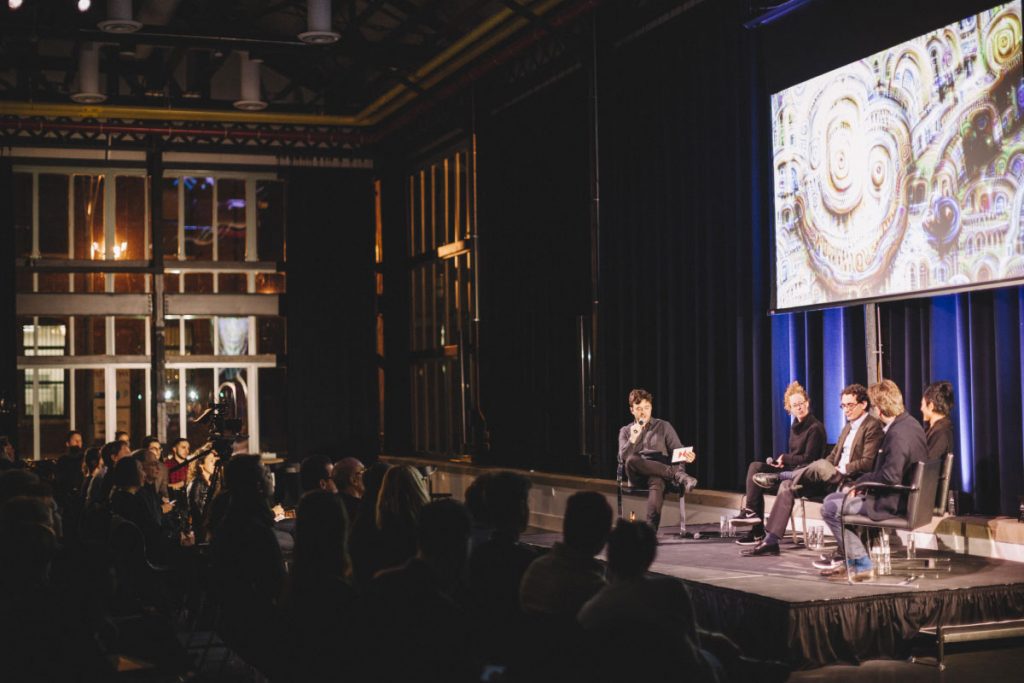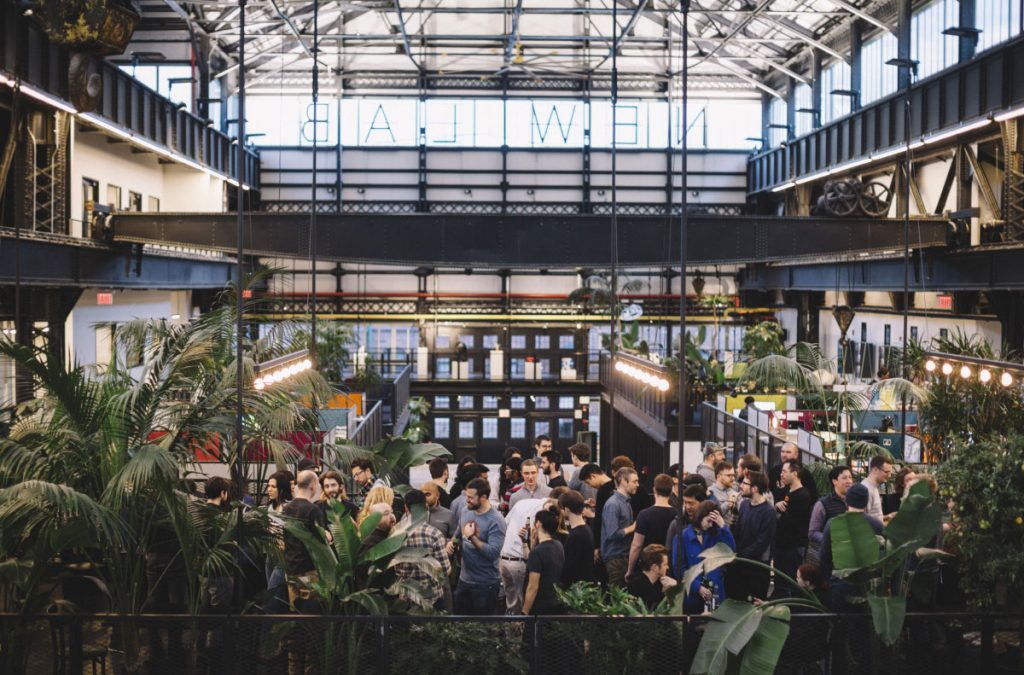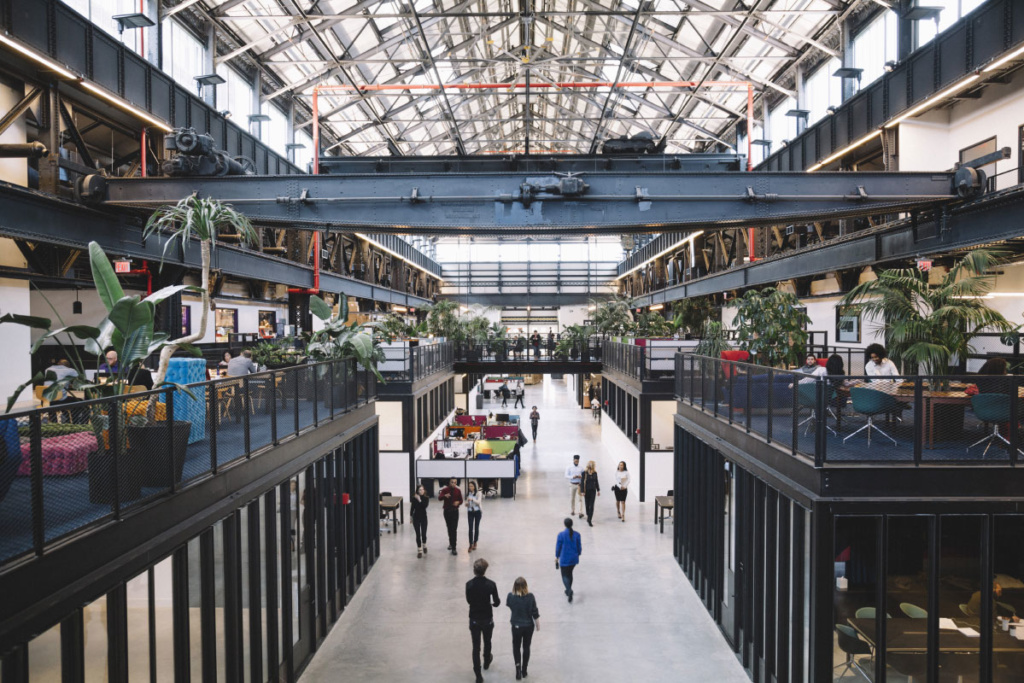Meet the incubators and accelerators producing the new guard of design and architecture start-ups. This is part of a series profiling incubators and accelerators from our April 2018 Technology issue.
Located in a former shipbuilding space at the Brooklyn Navy Yard, New Lab is an 84,000-square-foot collaborative tech hub dedicated to entrepreneurs working on scalable technologies and products. New Lab supports companies in nine disciplines: robotics, AI, urban tech, the built environment, energy, connected devices, additive tech, life sciences, and nanotechnology. Members benefit from access to a dizzying array of fabrication labs, including 3-D printing, woodworking, casting, CNC milling, and electronics, along with access to free software, including Autodesk and SolidWorks. But it’s also important to note that New Lab’s location in New York City is part of the draw, as the city itself is offered as an ideal laboratory to test the technologies in real-life urban conditions.

The flagship tech hub opened in 2016 and was founded to provide a supportive center for those companies working at the forefront of technology and human experience and to ensure that they have a reason to stay in the city. David Belt, New Lab’s co-founder and CEO, is careful to stress that the lab is not an incubator—that is, it is not dedicated to helping companies at the beginning of their research or product-development cycles, but rather those that have concrete products and built technologies and are ready to take the next step.
Through a formalized arm of the company called New Lab Ventures—a $50 million venture fund—the lab itself invests in some of its member companies and currently has investments in 14 of them; the lab also connects members to the world’s leading venture funds. And a joint program called the Urban Tech Hub, in partnership with the New York City Economic Development Corporation (NYCEDC), allows New Lab to support companies that strive to make a more livable, resilient city through their technologies and products. Additionally, the lab has other private-public partnerships in the works and a global partner network with Barcelona, Spain, and Copenhagen, Denmark, that offers other opportunities to members. New Lab currently has 103 member companies, with 600 individuals working at the space. Competition for entry is steep—just 15 percent of applicants are accepted.

Notable alumni include:
The founders see potential for their technology to be crucial for urban developers, autonomous vehicles, public transportation, and infrastructure. It allows for real-time, constantly updated 3-D mapping of cities.
The portable solar power company creates lightweight solar panels and solar-powered solutions for people, products, and structures alike.
This company develops ergonomic solutions for injury prevention and peak performance for the industrial workforce, including the construction industry.
An architecture and urban think tank that advances ecological design in derelict municipal areas. Terreform is New Lab’s only nonprofit and its only architect-centric member.
